French And Iranian Top Diplomats Hold Rare Meeting In Beijing
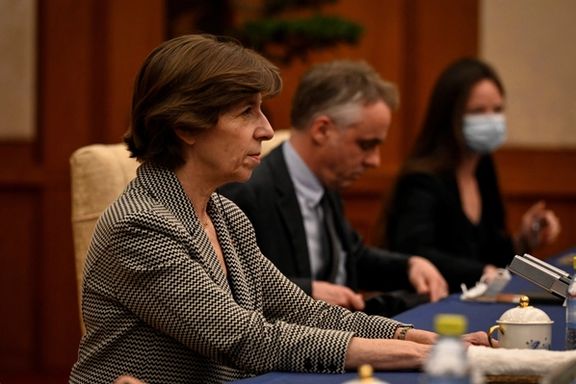
French and Iranian foreign ministers held a face-to-face meeting in Beijing Friday, with varying accounts emerging from the discussion.

French and Iranian foreign ministers held a face-to-face meeting in Beijing Friday, with varying accounts emerging from the discussion.
While France’s Catherine Colonna brought up the issue of French citizens “arbitrarily detained” in Iran, her Iranian counterpart Hossein Amir-Abdollahian urged France “to respect and uphold the rights of French citizens who protest.”
The meeting lasted two hours and was “useful” according to a tweet by Amir-Abdollahian. He said that bilateral relations, Iran’s “recent agreement with Saudi Arabia to restore relations, Ukraine, regional issues, including Palestine and Lebanon, lifting of sanction [on Iran] and our country’s peaceful nuclear program” were discussed.
The meeting was the second high-level meeting held between the Iranian foreign minister and a senior European official since talks to revive the JCPOA nuclear deal reached a deadlock last September.
In December the European Union foreign policy chief Josep Borrell met with Amir-Abdollahian in Jordan.
Amir-Abdollohian was in Beijing leading separate reconciliation talks between Iran and Saudi Arabia following a Chinese brokered deal in March.
A French statement said that Colonna "renewed her urgent demand for the immediate release of the six French citizens who Iran is arbitrarily detaining."
It is not clear to what extent the nuclear deal or Iran’s military support for Russia were focal points in the meeting. Europe and the United States have strongly condemned Tehran’s supply of weapons to Moscow that are being used to attack civilian targets in Ukraine.
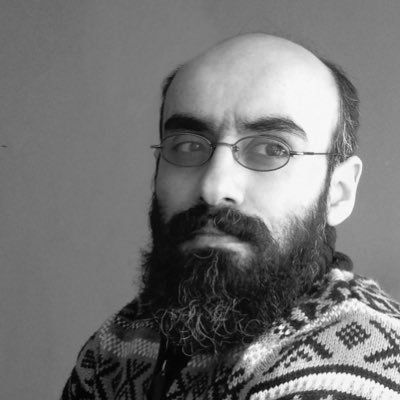
Iranian journalist and activist Hossein Razzagh, imprisoned in Tehran's notorious Evin prison, has had his sentence extended by four years.
Razzagh’s twitter account published an update on Thursday that Branch 26 of the Revolutionary court has issued a new sentence on charges of “conspiring and colluding with the intention of disrupting the security" of the country and "propaganda against the system.”
The charge of disrupting security was because of Razzagh’s managing a popular room on the social audio app clubhouse, and the charge of propaganda against the regime is for his open support for the Baha’i community, one of the most persecuted religious minorities in Iran.
The brave political activist was arrested by security forces in the northern Iranian city of Amol on August 21, less than a year after his release on $67,000 bail (20 billion Iranian Rials at the time) for his previous criticism of the regime.
Another charge against him was “publishing lies with the intention of disturbing the public mind," which he is accused of for tweets defending Sepideh Rashno, a woman who was arrested for protesting mandatory hijab rules before the death in custody of Mahsa Amini.
Razzagh, who has been detained many times in recent years, was one of the founders of a virtual chatroom in the clubhouse called "Freedom Square," where participants were critical of the regime. He claims he was forced to remove the room from the platform under pressure and threats by the Intelligence Ministry.

A moderate Iranian news website claims the Islamic Republic’s frozen assets in China are worth between $22 and $30 billion, suggesting that even Tehran’s close ally would not pay back its debts.
According to Rouydad 24, which was temporarily blocked by the country’s authorities for allegedly anti-regime sentiment in March, China is one of Iran's biggest debtors while Iraq owes Tehran about $11 billion for electricity and gas exports. South Korea has about $7 billion of Iran’s oil revenues frozen.
All these countries are unable to unfreeze the Islamic Republic’s money because the regime is under several rounds of US sanctions, and they would not jeopardize their ties with Washington for the sake of paying Iran’s debts.
The issue of Iran’s blocked funds has come to fore again following the International Court of Justice (ICE) rejection last week of Tehran’s legal bid to free up $1.75 billion of its assets frozen by US court rulings. The world court said that it did not have jurisdiction to rule on the Iranian claim linked to the assets of the Central Bank of Iran (CBI) that were blocked to be paid in compensation to victims of a 1983 bombing in Lebanon and other attacks linked to the Islamic Republic.
In a report published in 2022, the International Monetary Fund reported that by the end of April 2020, the amount of Iran's blocked assets around the world had reached $115.4 billion. And according to Alena Douhan, the UN Special Rapporteur on Unilateral Coercive Measures who visited Iran in May 2022, the Islamic Republic has between $100 billion and $120 billion trapped in foreign accounts because of US sanctions.
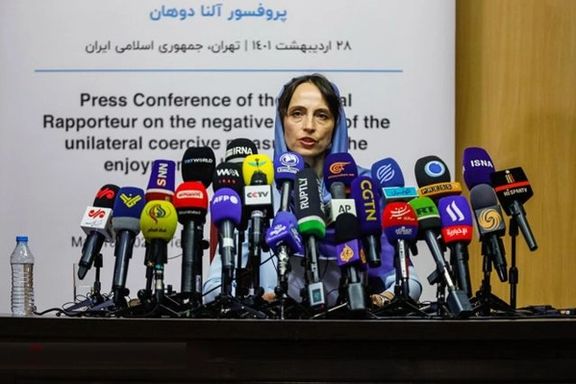
“I urge states to unfreeze the assets of the Central Bank of Iran in accordance with customary norms of international law,” Douhan said in Tehran, drawing criticism by several human rights defenders, such as Iranian Nobel Peace Prize Laureate Shirin Ebadi, and London-based human rights lawyer Shadi Sadr.
Sadr called Douhan a “mouthpiece for the Islamic Republic” and “a disgrace to UN human rights experts.” The role of this rapporteur was created at the UN Human Rights Council by the adoption of a resolution proposed by Iran on behalf of Non-Aligned Movement in 2014, and is the only UN rapporteur who was allowed to visit the country in about 20 years.
Iran’s properties abroad can be divided into two general categories: the state properties that are usually managed under the supervision of the Central Bank of Iran, and the properties of companies that are linked to the government, thus considered state-owned.
Moreover, Iran has shares in some companies such as Germany’s Mercedes-Benz, France’s Eurodif -- a multinational nuclear enrichment facility – and Aqaba oil pipeline in Jordan bought during the Pahlavi era. The country also owns lands and buildings such as the historical building of the Iranian Embassy in Washington and properties in the US and Canada belonging to the Alavi Foundation, the successor organization to the Pahlavi Foundation that was a nonprofit group used by Shah Mohammad Reza Pahlavi to advance Iran's charitable interests.
The Islamic Republic – especially since the administration of President Ebrahim Raisi began -- claims that it is selling more oil, gas, and electricity but apparently the revenues are piling up in Chinese, Iraqi or other countries’ banks. Unless the regime finds a way to revive its 2015 nuclear deal with world powers, it is not expected that Tehran would access its frozen funds, especially now that prominent opposition figures have been calling on world countries to allow the funds to be used to support the striking workers of the energy industry in the country.
Axios reported on Monday that the Biden Administration has been entertaining the idea of a partial nuclear deal with Iran and has discussed it with allies, a claim that seems very disappointing for the Iranian protesters who have been holding regular anti-regime rallies since September, when the regime’s hijab police beat to death 22-year-old Mahsa Amini.
The only other way that the Islamic Republic can push other countries to unblock the assets is through its policy of hostage taking, something that is historically the source of contention between the Islamic Republic and the US as well as other countries. Time and again, reports surface in Iranian media that some of the frozen funds will be imminently freed in exchange for Iran releasing one or some of the foreign nationals it has imprisoned during the years on trumped up charges such as espionage.
The editor of hardliner daily Kayhan, Hossein Shariatmadari, who is known to be the unofficial mouthpiece of the Supreme Leader, keeps suggesting that Iran should block the entry of ships and oil tankers into the Persian Gulf via the Strait of Hormuz to put pressure on the countries blocking the regime’s money to repatriate Iran's oil money.
What happens from here is unclear, but Iran is finding that even its allies will not make exceptions for its ever increasing debts.
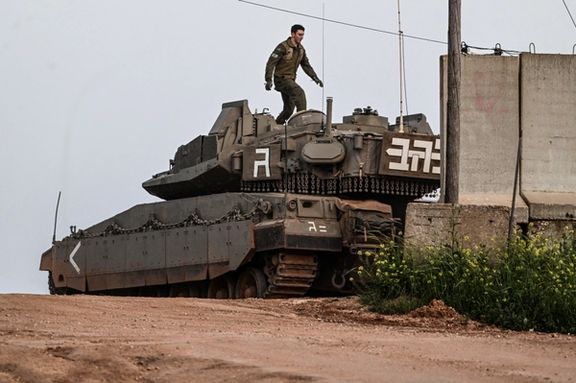
Iran International sources have provided further information about the newly intensified Israeli attacks on the targets affiliated with the Islamic Republic in Syria.
According to the sources, the attacks on March 30 and 31 hit intelligence centers operated by Iran and Lebanese militant outfit Hezbollah in cooperation with the Syrian government forces in the al-Mazzah municipal district in the capital Damascus and the attack on April 4 targeted Al-Qusayr airport near the Lebanese border.
Vowing revenge, the Islamic Republic has admitted that two IRGC “military advisors” -- namely Meqdad Meqdani (Meghdad Meghdani) and Milad Haydari – were killed in the late March attacks. According to the sources, the attacks seemed to be Israel's response to a foiled terrorist attack a week ago in the Megiddo area inside Israel by a person who, according to Israel, was sent by Lebanon's Hezbollah.
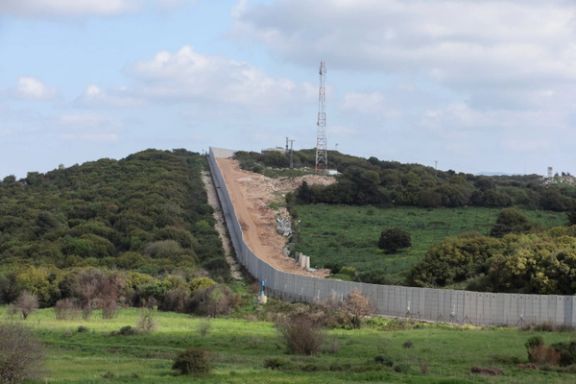
The sources added that both Meqdani and Haydari were IRGC intelligence officers in Syria, noting that a group of senior members of the IRGC Intelligence Organization, including former head of the body Hossein Taeb, visited the bereaved families of the two “martyrs” in the past few days.
Iran usually does not report the extent of its casualties in Syria and some observers say that acknowledging the deaths of two IRGC personnel can mean that Tehran wanted to lay the ground for retaliation. Iran International sources are of the opinion that the IRGC forces are planning an imminent attack inside Israel with the help of Hezbollah forces.
On Thursday, dozens of rockets were fired into Israeli territory from Hezbollah-controlled southern Lebanon, where several displacement camps hosting Palestinian refugees and armed factions are located.
According to Israeli-based news channel i24NEWS, Hezbollah has told Lebanese media that Palestinian groups were behind the rocket attacks.
Three security sources also told Reuters that Palestinian factions based in Lebanon were behind the rocket attacks on Thursday afternoon across the disputed border into Israel.
The Israeli military is still assessing the situation following Thursday's rocket strikes from Lebanon but is working on the assumption that Palestinian factions were behind the attacks, a defense official said. The Israeli military said 34 rockets were launched from Lebanon on Thursday, of which 25 were intercepted by its Iron Dome anti-missile system.
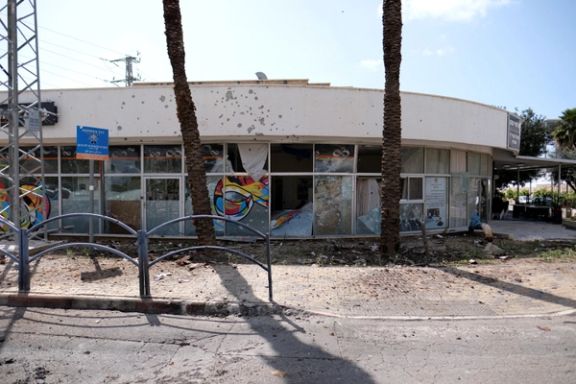
In response to the volley of rockets fired from Lebanon, Israeli Prime Minister Benjamin Netanyahu promised to hit back hard, saying "As for the aggression aimed at us from other fronts - we will hit our enemies and they will pay a price for every act of aggression." Hours after his threat, powerful Israeli airstrikes rocked Gaza strip after midnight on Friday.
Iran has considerable drone capabilities that it has used against US bases in Syria as recently as last month, killing a US contractor and injuring at least eight US servicemen.
Tensions rose in Syria when on March 23 Iranian backed forces attacked a US base with a drone, inflicting casualties. The US responded with an air strike, which was followed by more attacks on US forces. The tit-for-tat strikes stopped after two days, but Iran has targeted US forces in Iraq and Syria 80 times since early 2021 when the Biden administration assumed office.
Israel has been regularly attacking targets in Syria since 2017 to weaken Iran's attempts to strengthen its military presence in the war-torn country and build up a threat on Israel's northern borders.

As tension mounts between Iran and Azerbaijan, Baku says it has arrested six Iran-funded agents accused of a coup plot.
According to the Interior Ministry, State Security Service and Prosecutor General's Office of Azerbaijan, the group is charged with trying to overthrow the government.
They claim the members of the group were recruited by Iranian special services. According to local media, the detainees, calling themselves “believers”, carried out pro-regime propaganda and religious radicalism through social networks.
The latest news reflects growing tensions between Baku and Tehran. Earlier in the week, Baku announced it had arrested four people in connection with the attempted assassination of a lawmaker who was shot and wounded last week.
Fazil Mustafa, a lawmaker who had been strongly critical of Azerbaijan's neighbor Iran, has been recovering in hospital after what the state security service described as a terror attack.
Relations between Azerbaijan and Iran, which has a large population of ethnic Azeris in its northwest, have been strained in recent months after Baku announced plans to open an embassy in Israel. Though Israel has had an embassy in Baku since the 1990s, it was a show of deepening ties for Baku to open an embassy in the Jewish state.
Iranian officials have accused Azerbaijan of allowing Israel to set up intelligence and military bases on its territory as an operational base against Iran, a claim Baku denies.
Meanwhile, in January, Azerbaijan closed its embassy in Tehran after what it called a "terrorist attack" that killed the embassy's head of security.
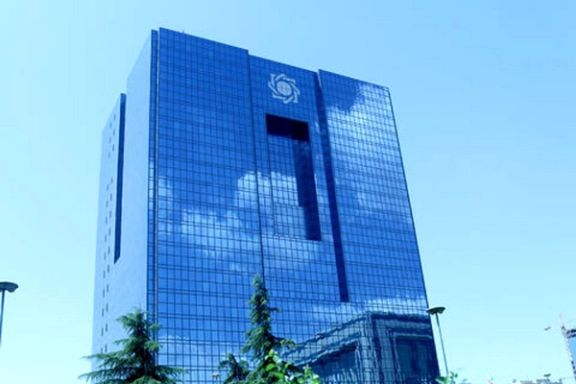
Chaos has ensued in Iran’s financial and currency markets as the government tries to restrict the sale of cash US dollars.
The Central Bank of Iran (CBI) issued a new directive in March to stop cash dollar sales by forex dealers and instead required people to open dollar accounts to deposit their foreign currencies.
Buying dollars had become a critical means of Iranians securing what money they have amidst biting sanctions and a plummeting local currency.
With annual inflation running at more than 50%, Iranians have been trying to protect the value of their savings by buying foreign currency or gold.
Moneychangers told Iran International that after the announcement, cash dollars have become scarce and banks are creating obstacles for people in opening foreign currency accounts.
Last month, the Central Bank said selected banks could sell foreign currency up to €5,000 to each Iranian annually at rates announced on the Iran Central Exchange (ICE) website, but it later lowered the cap from €5,000 to €2,000 as many in the market were reselling to earn extra money.
In February, as the Iranian currency began to fall to new lows, officials announcing that citizens will not be allowed to buy their annual share of foreign currency from official exchange bureaus. They also said that the government will stop providing dollars to banks and official dealers for that purpose.
Amidst the government’s failed attempts to control the exchange market, the rial was trading above 500,000 to the US dollar, and 550,000 to the euro on Thursday. One year ago the dollar traded at around 250,000 rials.
Ordinary people and businesses see the move as yet another dubious government scheme, typical of the state-controlled economy.